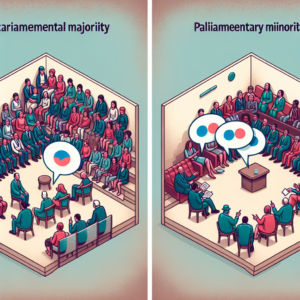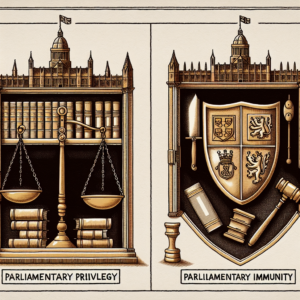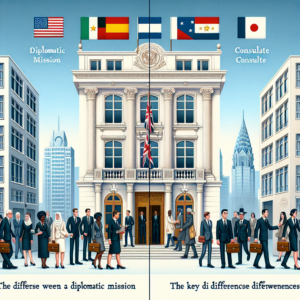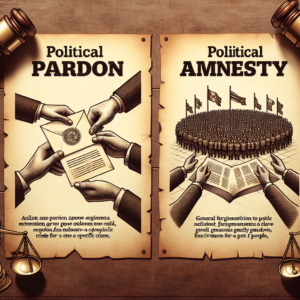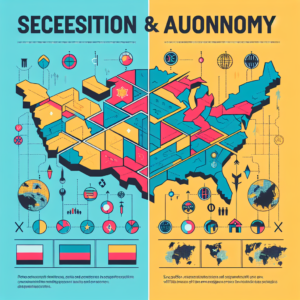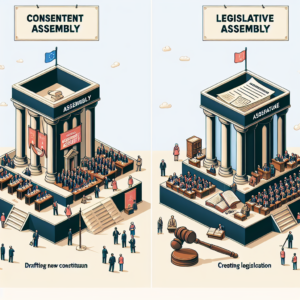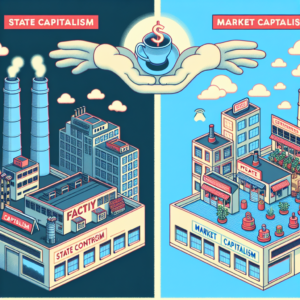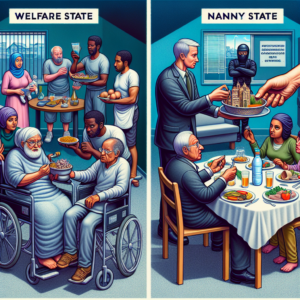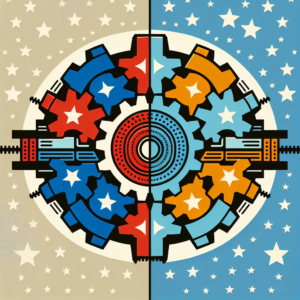In the realm of international relations and politics, two concepts often arise that shape policy decisions: Realpolitik and Idealpolitik. These two philosophical approaches have guided countless leaders and governments throughout history, informing their strategies, decisions, and overall visions. However, the difference between Realpolitik and Idealpolitik is crucial to understanding the motivations behind various political decisions and the potential consequences of these policies.
Understanding the Concepts: Realpolitik and Idealpolitik
Realpolitik, a term coined in the 19th century, is a philosophy that prioritizes practical considerations over moral or ideological ones. The term is derived from the German word ‘real’, meaning practical or actual, and ‘politik’, meaning politics. In essence, Realpolitik is a pragmatic approach, where the primary goal is the pursuit of a nation’s self-interest, often through power and force if necessary. The ends justify the means in Realpolitik, even if the means involve actions generally deemed unethical.
Idealpolitik, on the other hand, is a contrasting approach, emphasizing the role of ideals, morals, and principles in policy-making. The term is derived from the German word ‘ideal’, meaning an idea or standard of perfection, and ‘politik’, meaning politics. It promotes the belief that ethical and moral considerations should guide political actions. Unlike Realpolitik, which is often driven by power and practicality, Idealpolitik is based on a vision of what the world should ideally be like, and politics are geared towards achieving this vision.
Comparing Realpolitik and Idealpolitik: Key Differences
The primary difference between Realpolitik and Idealpolitik lies in their guiding principles. Realpolitik is driven by pragmatic considerations and the pursuit of power, often dismissing ethical or moral concerns if they conflict with the nation’s self-interest. This approach believes that the pursuit of practical outcomes justifies the means used to achieve them. On the other hand, Idealpolitik places moral and ethical considerations at the forefront of political decision-making. It argues that political actions should be guided by principles of justice, fairness, and integrity, even if this requires sacrificing practical or immediate gains.
Another key difference between these two approaches is how they conceptualize and respond to conflict. Realpolitik tends to view conflict as an inevitable part of international relations, and its practitioners often employ power and coercion to protect national interests. Idealpolitik, however, promotes peaceful resolutions and diplomacy, emphasizing the importance of international cooperation and harmony. This approach is often associated with the promotion of human rights, democracy, and international law.
The difference between Realpolitik and Idealpolitik also extends to their views on the role of international institutions. Proponents of Realpolitik often see these institutions as tools for advancing national interests, while Idealpolitik advocates view them as platforms for promoting global cooperation and rectifying injustices.
To conclude, the difference between Realpolitik and Idealpolitik lies in their underlying principles, responses to conflicts, and views on international institutions. While Realpolitik prioritizes practicality and power, Idealpolitik privileges ethics and ideals. Understanding these differences is crucial for comprehending the motivations behind political actions and the potential outcomes of these policies. Each approach presents its own advantages and challenges, and a balanced understanding of both is necessary for effective diplomatic and political strategies.


